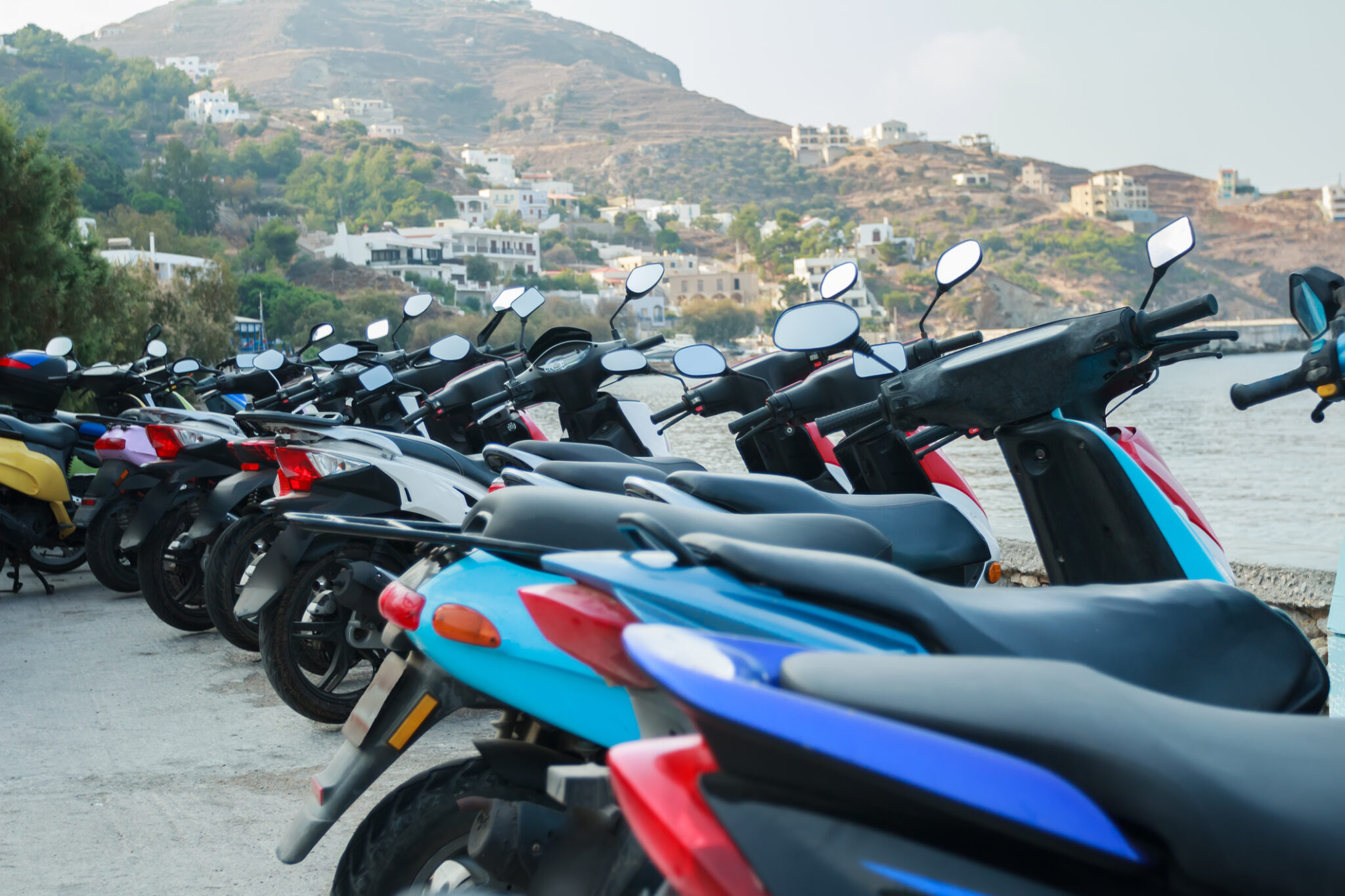
This week’s question comes from James in the Sunset who asks: “My girlfriend has a Vespa and we want to go riding together. I have seen these “Scoot” vehicles riding all over town. I looked online and have some questions about renting one of these things that I thought I would ask you as I don’t want to get into any trouble riding. I don’t have a motorcycle license and don’t have motorcycle insurance. I have zero experience riding a motorcycle or scooter. I also weigh 265 lbs. What happens if I rent one of these things and get into an accident or if it gets knocked over by someone? What are my rights/responsibilities?”
James, thanks for raising this question. You have caused me to learn more about Scoot and some of what I read has me concerned. First, for the uninformed, Scoot is in the business of short-term rental of electric scooters. Scoot offers two models the Scoot, with a small cargo box and the Cargo with a 90-liter cargo box that they say has enough space to fit 6 six-packs, 4 pizzas, or 30 pints of ice cream. Both are electric and may be found at over 75 locations throughout the City, some in parking garages where they are charging and others charged and parked in the street. They say that there are currently 500 vehicles on the road in San Francisco. Scoot is an app-enabled service much like Zip Car service. Scoot says it’s free to join but there is a charge for a DMV check of $10.00 which is reported to be non-refundable if you have a history of traffic violations and/or accidents that will disqualify you from being a member.
Scoot’s vehicles apparently fall under the definition of a “motorized scooter” under California Vehicle Code 407.5. Section 407.5(a) defines a “motorized scooter” as any two-wheeled device that has handlebars, has a floorboard that is designed to be stood upon when riding, and is powered by an electric motor which cannot achieve speeds of greater than 30 miles per hour. This device may also have a driver seat that does not interfere with the ability of the rider to stand and ride and may also be designed to be powered by human propulsion.
According to their website, Scoot membership does not require a motorcycle license. The DMV website states that while motorized scooters do not require a motorcycle license, motor-driven cycles (those powered by an engine 149 cc or less – think Vespa) do. Looking at a Scoot, it resembles a motor driven cycle, given its style and design, more than a motor scooter but, apparently, because it is electric and has a floorboard big enough to stand on they are apparently riding through this loophole.
As Scoot members do not have to have a motorcycle license, they do not have to demonstrate an ability to ride a scooter before taking one of these cute little potential death traps out for a spin. A new member must either do an in-person tutorial or watch an on line 20-minute instructional video. To me a video is inadequate training which I think creates some liability for Scoot. I can assure you that if you are injured by the fault of another riding a Scoot the defense will be that you had inadequate knowledge of how to operate one. As someone who rode minibikes, scooters, mopeds and eventually motorcycles for 40 years, I can tell you that operating a two-wheeled vehicle is much more precarious than one with four wheels. I recommend that anyone who wants to ride a motorized two-wheel vehicle take an approved motorcycle rider safety course.
Scoot says that its vehicles are insured up to $1,000,000.00 so long as you are not breaking any of their rules. This coverage is only for the benefit of anyone that you may injure as the result of your negligent operation. It provides no coverage for the damage to the scooter or injury to yourself because of your fault or that of another. So, if you are hit by someone without insurance you will not have any coverage for any medical injuries or other losses, such as lost wages, pain and suffering, disfigurement, etc. Moreover, if the collision is your fault you will be hit for the cost of repair or replacement of the scooter and possibly Scoot’s loss of rental income for the period it is out of commission. Likewise, if someone backs into the scooter and knocks it over you will be held liable for the cost to repair it unless you can prove that it was not your fault.
If you, at their discretion, are found to have violated one of their “rules” such as riding it outside of SF, carrying a passenger, letting someone else drive it, or, in your case, being over 250 lbs., they may deny you insurance coverage altogether thereby leaving you in the black hole of vehicle insurance set forth by Proposition 213 (see our website for more info) which will prevent you from recovering damages for your injuries even if you are not at fault. Therefore, just because it is shiny, cute, and looks like fun, think before you scoot.
If you are injured on a Scoot, try and document what happened through photographs/videos and an accurate police report. Given the complexities of this developing area of insurance and laws involving licensing of scooters, I recommend you contact an experienced trial lawyer to advise you. Oh, ALWAYS wear a helmet. Scoot rules aside, it is the number one rule in 2-wheeled safety. Scoot provides two sizes to choose from with every rental.
By attorney Christopher B. Dolan, owner of the Dolan Law Firm. Email Chris questions and topics for future articles to help@dolanlawfirm.com
We serve clients across the San Francisco Bay Area and California from our offices in San Francisco and Oakland. Our work is no recovery, no free or also referred to as contingency-based. That means we collect no fee unless we obtain money for your damages and injuries.










